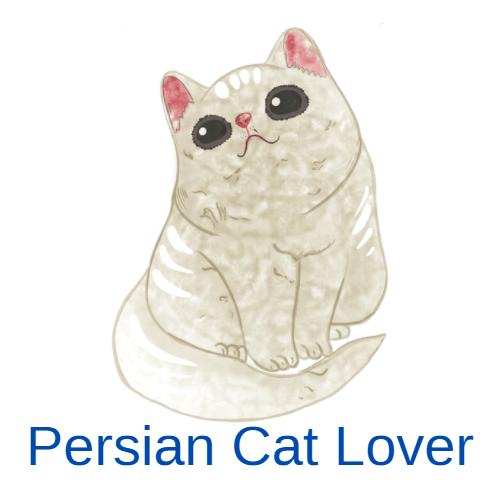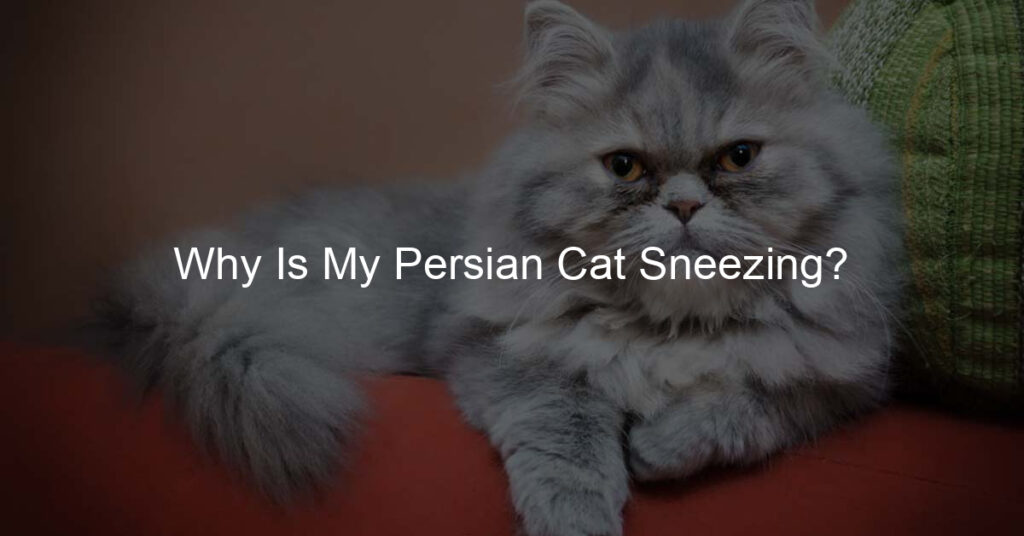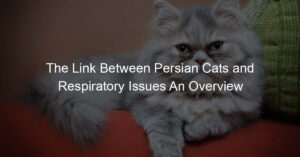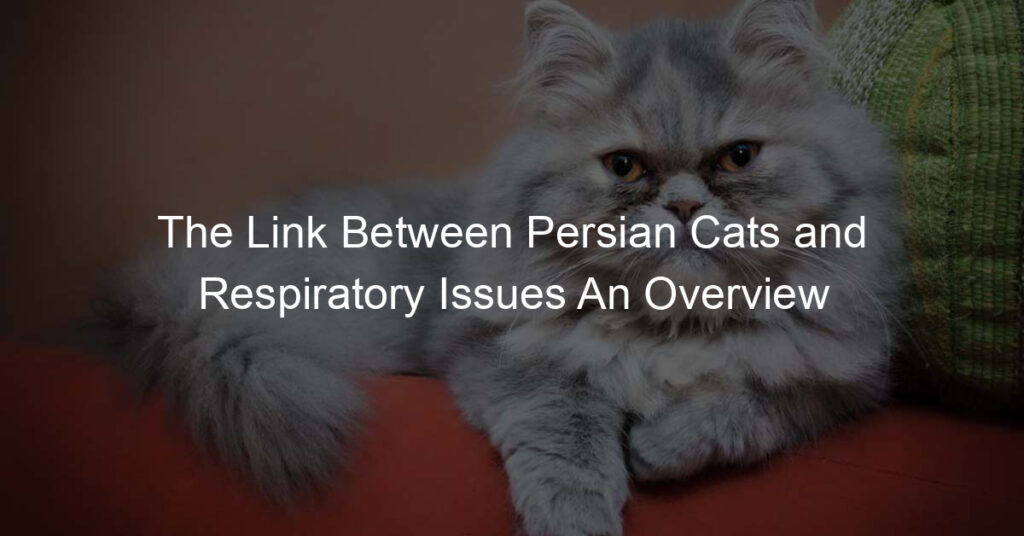If you’re the proud pet parent of a Persian cat, you’ve probably heard your kitty sneezing more often than other breeds. But while it may seem like something to be concerned about, don’t panic just yet!
Thanks to their gorgeous fur and facial features, Persian cats’ sneezing is a normal part of life. However, the combination of their long and luxurious coat and short nasal passages can make them prone to environmental triggers like dust or pollen that can cause an occasional tickle in the nose.
To keep your beloved feline feeling her best, keeping up with regular grooming and brushing will help remove any irritants that may be causing sneezing bouts.
Also, be sure she has plenty of fresh air circulating throughout her living space; a fan or air purifier can help reduce the amount of pollen and dust in the air.
And if your Persian cat is still sneezing excessively, it’s best to check in with your vet for further advice. Once you know what’s causing her sneezes, you’ll have peace of mind knowing that she’s healthy and happy!
Is It Normal for Persians To Sneeze?
Yes, it is common for all cats to sneeze from time to time. However, if your Persian cat is excessively sneezing a lot more than usual or has other symptoms such as a runny nose, watery eyes, coughing, or difficulty breathing, you should consult your vet.
There could be an underlying medical issue that needs to be addressed.
It’s essential to recognize the difference between average and excessive sneezing to prevent any potential health problems down the line.
When it comes to Persians, their flat faces are prone to respiratory issues, which can lead them to have more frequent episodes of sneezing. So keep an eye out for why Fluffy might be making a commotion!
A simple allergen or irritant could be the culprit. If this is the case, simply remove the source, and your kitty should be back to purring in no time.
Do Persian Cats Get Colds?
Well, cats can get colds just like humans do. So if your Persian cat is sneezing, it might have a little feline sniffle.
Signs of cold in cats include discharge from their eyes and nose, coughing, fever, lethargy, decreased appetite, and difficulty breathing. If you suspect your Persian cat has a cold or other illness requiring treatment, then be sure to get them to the vet immediately.
In the meantime, consider adding some extra moisture to your cat’s air with a humidifier to help soothe itchy noses and congested chests! And don’t forget lots of TLC – cuddles, and snuggles should always be on the agenda when one of our furry friends isn’t feeling well!
How Do You Clean a Persian Cats Nose?
If a runny nose accompanies your Persian cat’s sneezing, chances are it needs to be cleaned. Cleaning a Persian cat’s nose isn’t necessarily easy, as their long fur can make it difficult to access their nostrils.
But with some patience and the right tools, you’ll be able to keep those fuzzy little noses clean and healthy in no time!
First things first, get yourself some cotton balls and saline solution (or a homemade saline solution made from distilled water and sea salt). You’ll want to dampen the cotton ball in the saline solution before using it on your kitty’s nostrils.
Next, gently swab each nostril with the dampened cotton ball until any dirt or mucus has been removed. Be sure only to use a small amount of pressure – you don’t want to irritate your Persian cat’s delicate skin!
Once the nostrils are clean, pour a few drops of the saline solution into each nostril and gently massage the base of the nose for about 30 seconds. This will help loosen any remaining dirt or mucus. When finished, wipe away any excess solution with a clean cotton ball.
Are Persian Cats Prone to Allergies?
Most Persian cats are not prone to allergies, but it’s still possible for them to suffer from sneezing fits. Allergies can be caused by various factors, such as molds, mildew, dust mites, pollen, or even human dander.
If your cat is sneezing more often than usual and displaying other symptoms, such as itchiness and swelling around the eyes or face, then it could be an allergy issue. In this case, you should seek professional medical advice from your veterinarian to properly diagnose and treat the problem.
In some cases, it is just due to environmental irritants like smoke or perfumes that are present in their environment.
To help prevent these instances of sneezing, keep your Persian cat away from any sources of environmental irritants. If the sneezing persists, it may be time to visit the veterinarian.
Are There Any Special Diets or Treatments I Should Consider To Help Prevent Sneezing Fits in My Persian Cat?
While there are no one-size fits all solution to preventing sneezing fits in Persian cats, there are a few things you can do to help keep your kitty healthy. It is key to ensure they have access to fresh, clean water and a balanced diet with plenty of nutrients.
You might also want to consider adding supplements such as fish oil or omega-3 fatty acid capsules to your food; these ingredients help promote good respiratory health.
It’s also important to groom your cat regularly to remove any excess dirt or debris from their fur, which could be contributing to the sneezing episodes.
At the end of the day, make sure that you keep an eye on your Persian cat’s behavior and take note of any changes in its health.
Is There a Way To Tell if My Persian Cat Has Asthma-Like Symptoms?
If your Persian cat is exhibiting regular sneezing fits that last longer than a few minutes, it may indicate asthma-like symptoms.
Asthma can be difficult to diagnose in cats, so if you suspect that this could be the case, take them to the vet for further testing. When diagnosing asthma in cats, vets often rely on chest x-rays and endoscopies to observe any changes in the lungs or airways.
Treatment typically involves avoiding environmental triggers such as smoke or dust mites while providing medications like bronchodilators and corticosteroids to help reduce inflammation and open the airways.
Keep in mind that prevention is often the best course of action for Persian cats. If possible, try to maintain a clean environment with plenty of fresh air and ventilation.
Pay close attention to any changes in their behavior or health, as these could be signs of underlying issues like allergies or asthma-like symptoms.
The bottom line is that the health of your Persian cat should always be a top priority. Taking preventative measures to reduce their exposure to potential allergens and keeping an eye out for changes in behavior or behavior can help ensure your kitty stays happy and comfortable.














